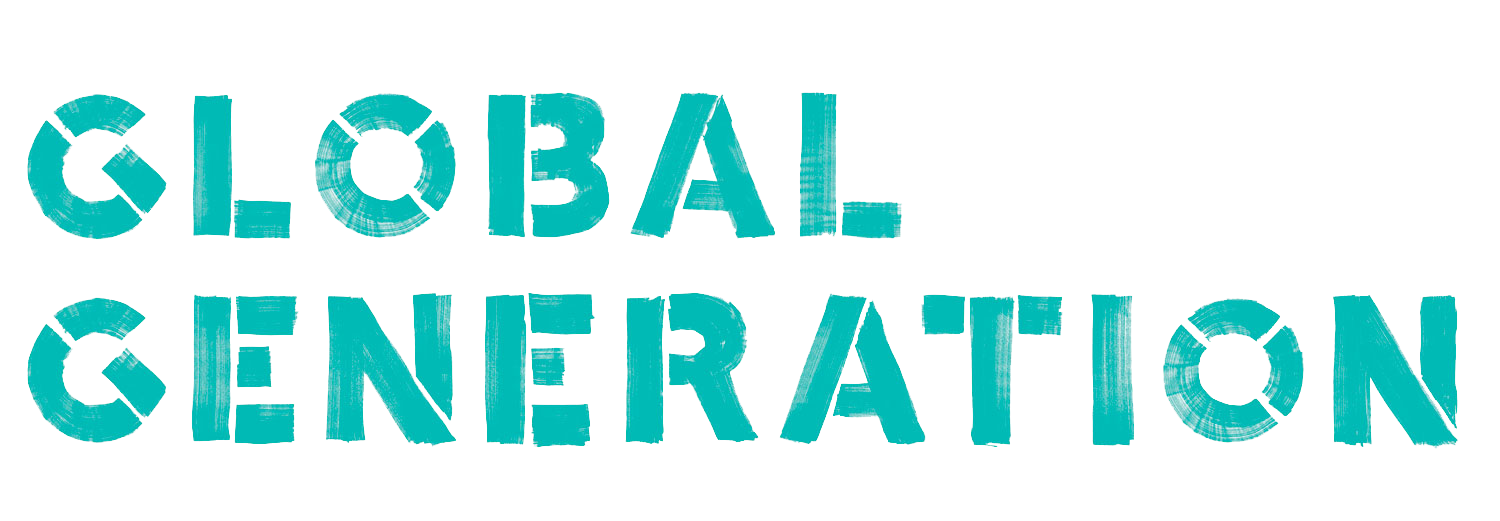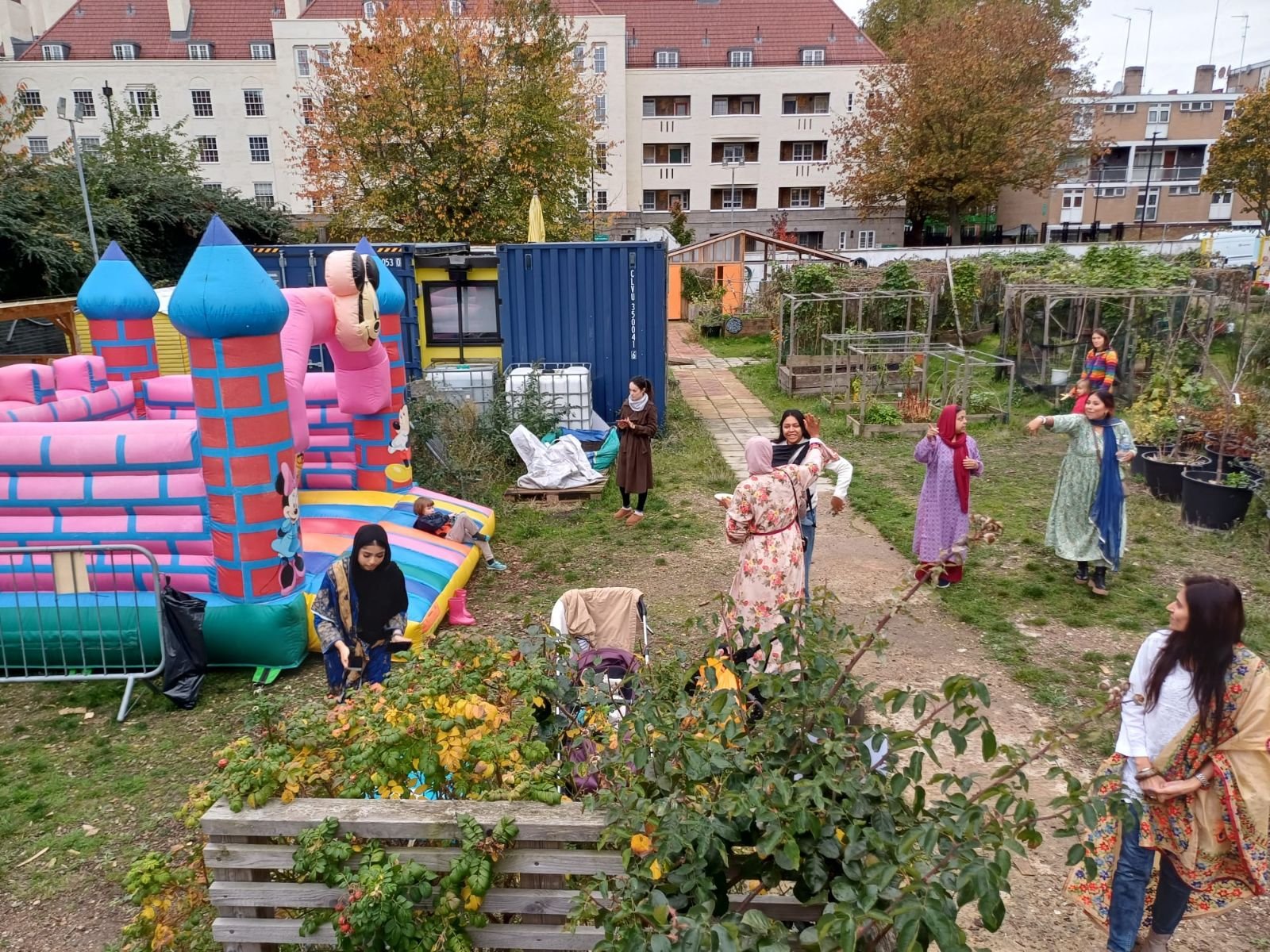Voices of the Earth
“Hello, broad bean. Do you mind if I take a seat here and watch the world pass by with you?”
It was a cold, fresh evening in early February, and as I walked through the Story Garden I caught sight of the distinctive, light green, rounded leaves and upright posture of a collective of broad beans. Following an unusual instruction to “meet a plant, whichever draws your attention”, I made for this group and perched on the edge of their planter.
“I’ve noticed the broad beans this year,” I said, “ you’ve been growing all through the winter, the energy contained in your hefty seed propelling your first strong leaves out of the soil, up, up, up towards the sky.”
Sitting beside the broad beans, I started to recognise them as fellow living beings, and I imagine them now, standing stoic amidst the chaos the world has been flung into over recent weeks. Recognising them in this way helped me to move beyond the simplifications and separations we often create: I am animal, you are plant; I eat you, you feed me; I am self-aware, you don’t possess consciousness; I am in control of my own destiny, yours is more or less planned out for you. The voice of the Earth was telling me to feel my way beyond a sense of things being separate, linking me in time and space to the other inhabitants of the soil.
Our group met again a week later, this time inside the British Library. Books preserved from as long ago as half a century took us back to a different time, telling us stories of great “projectors” (those who always have a project), of a rogue physician and medical reformer*, of a woman** who drew plants to pay off her husband’s debts… We heard unheard stories of thinkers we now remember for their contributions to science - Copernicus, Galileo, Newton, Kepler - stories of alchemy and magic: the quest to create an elixir of immortality, a universal healing tonic, to transform base metals to gold. We discussed how Enlightenment, then modernity, came and went, and things became divided further and further into disciplines and subdisciplines, each with their own rules guarding the progression of their specific cannons of knowledge. And we thought about how science and magic were once intertwined, or at least not as binarised as they are today.
Our third session continued on the theme of herbalism and medicine, and the connections and contrasts between them. The day began with a visit to the garden of the Royal College of Physicians, a minute’s walk from Regent’s Park. Here, plants notable for their medicinally interesting properties have been brought back from all corners of the world, and are now cultivated by a team of gardeners. In an interesting coincidence, our tour began beneath the branches of an oriental plane tree, just like the one under which Hippocrates would have sat on the island of Kos in Greece. Often referred to as the father of medicine, Hippocrates is also an early separator, splitting medicine from religion with his assertion that disease comes from natural causes, not spells, superstition or deities. While this advanced the practice of medicine, it also began our cultural journey towards a mindset that frames the way we see herbalism, botany, pharmacy and medicine as separate, rather than integrated.
During the tour, we were introduced to plants that heal and plants that harm - or, in most cases, those that heal by harming in small doses. We heard about a plant that can cause Parkinson’s disease, leaves that can be eaten to cure scurvy, and the Pacific yew tree whose bark harbours the compound Taxol, which blocks cell division and can be used in cancer treatment. Our guide, Henry, was careful to point out that plants did not evolve their medicinal properties for human use. However, the tour was a reminder of how the tiny, synthetic-looking pills we take to address all kinds of ailments have almost always been derived from nature, regardless of whether those same compounds, like Taxol, can now be synthesised in a lab. I have often thought it far-fetched when environmental groups argue that a cure for cancer could be growing in the rainforests we’re flattening. Now, I turn that idea back around to ask myself, why do I underestimate the power of plants?
Contrast, connection and separation are some themes that have arisen so far in the Voices of the Earth project. After the visit to the Royal College of Physicians, our group returned to the Story Garden to spend the afternoon with Theatre Complicité, exploring these themes in a different, more sensory and embodied way. The session culminated with each group portraying, through physical theatre rather than words, a different poem selected from Jackie Morris and Robert Macfarlane’s book The Lost Words. Each poem in this book aims to reinstate the words of nature, which have been eliminated from the children’s dictionary, as necessary vocabulary in the 21st century. Each poem reached into the character of its plant, enabling us to explore, through the distance between our bodies, the heights we stood to, the movements of our limbs, our own place within the order of nature.
* Nicholas Culpepper translated medical books from Latin into English, democratising institutionalised knowledge on medicine and pharmacology.
** Elizabeth Blackwell, Curious Herbal
Funding for the Voices of the Earth project is provided by The National Lottery Heritage Fund and delivered in partnership with Theatre Complicite, The British Library, LB Camden (Arts and Culture and Green Spaces) and Hopscotch.









Meet our second cohort of earth build trainees! Their focus has been on all things wood, including green woodworking and the timber construction of the kitchen. They have learned on the job, while working on our sustainable natural build construction project to create our first permanent community garden, at the #TriangleSite.